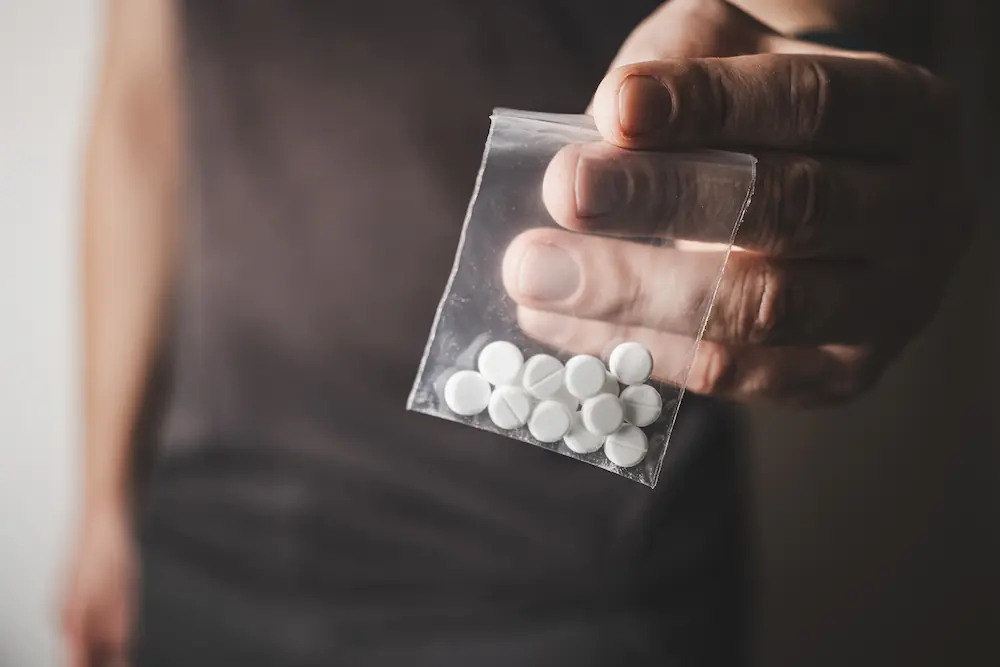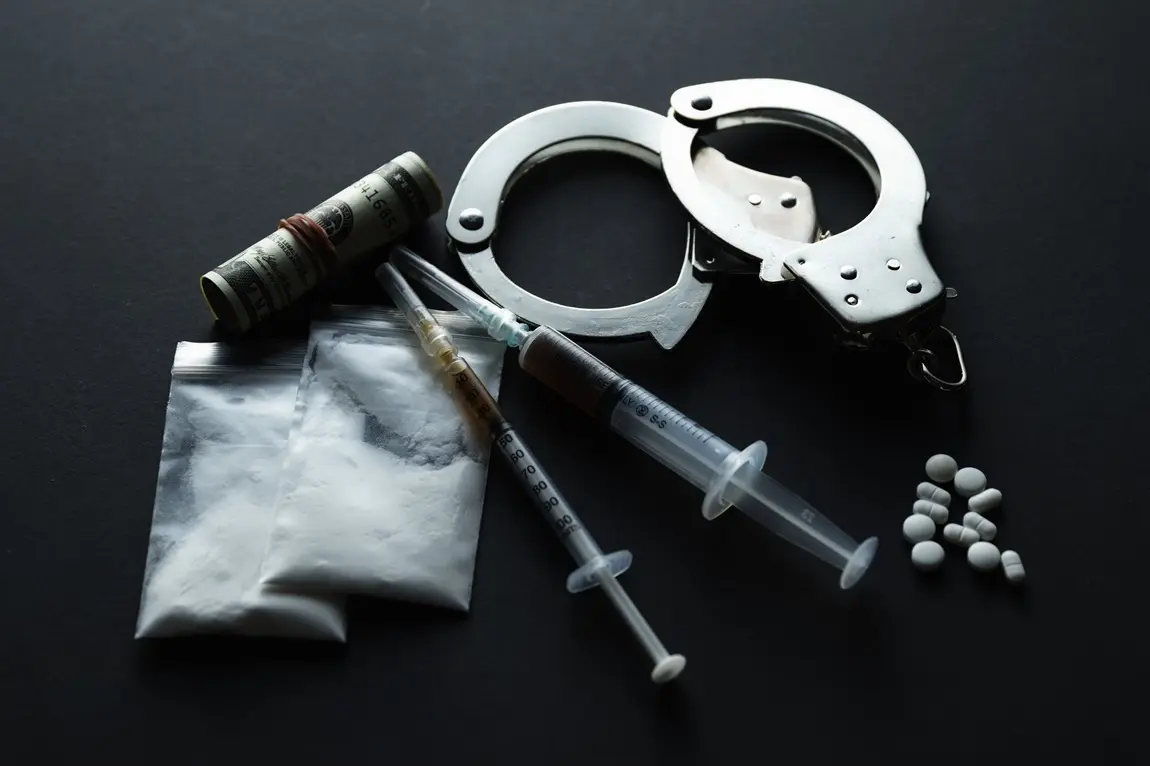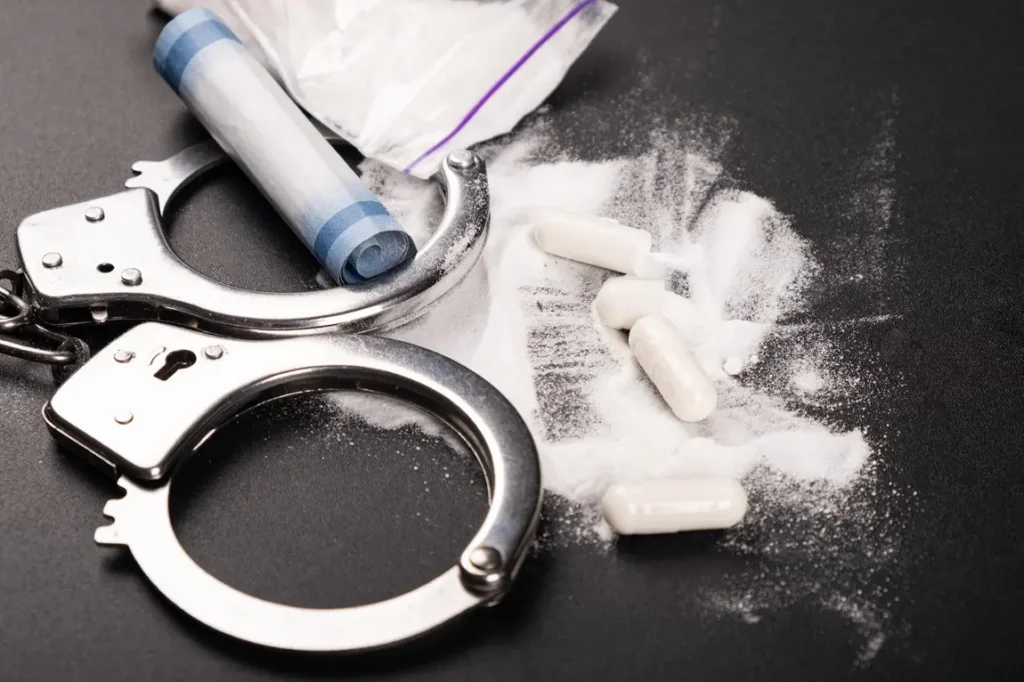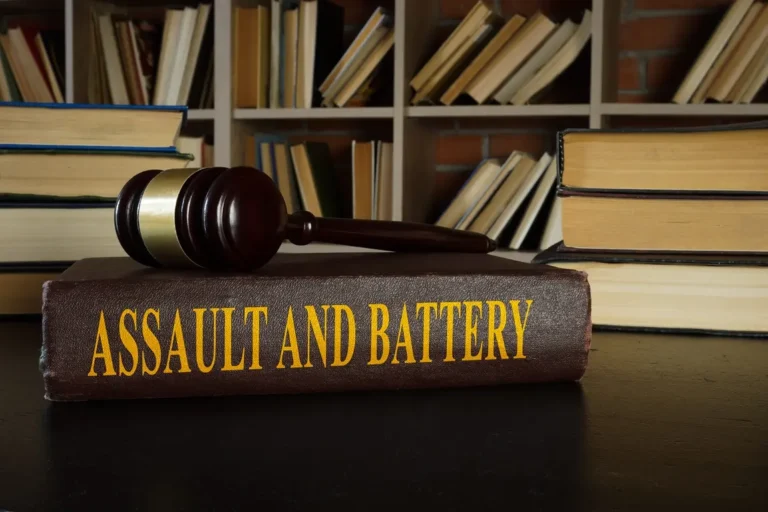The State of Ohio takes drug possession extremely seriously. If police find an illegal controlled substance in your possession, Ohio law necessitates that you be charged. Ohio law also has strict mandatory minimum sentence requirements, which means you could face harsh penalties even if you didn’t know anything about the drugs or are struggling with addiction. That’s why you need to contact a criminal defense lawyer right away.
What You Should Know About Ohio Drug Possession Laws
Ohio drug possession laws are codified by Ohio Revised Code Section 2925.11 and define possession of controlled substances as “knowingly obtaining, possessing, or using a controlled substance.”
Ohio law mirrors federal controlled substance laws and classifies drugs into five schedules. These schedules range from Schedule I (most serious) to Schedule V (least serious). The severity of criminal charges will vary based on the type of controlled substance involved and the amount of the drug. For instance, possessing a minimum amount of a Schedule V drug may be a minor misdemeanor, whereas drug trafficking in a Schedule I controlled substance could be a first-degree felony. In addition, charges may apply if you’re found with drug paraphernalia such as pipes, bongs, or syringes, even if no drugs are present.
A Dayton drug crime lawyer can help you determine the severity of your drug possession charge and mount a strong defense against felony drug charges, including those related to trafficking, cultivation, or distribution.
Ohio Drug Laws on Controlled Substances
Chapter 3719 of the Ohio Revised Code divides controlled substances into five schedules:
- Schedule I drugs have a high potential for abuse and no accepted medical uses. Common examples of Schedule I controlled substances include marijuana, LSD, and heroin. However, the State of Ohio has approved the medical use of marijuana if you have a medical license. If you’re a qualifying patient, you must follow the proper legal process to order marijuana through state-approved dispensaries.
- Schedule II drugs have limited accepted medical uses, but they also have a high propensity for abuse and physical dependence. Some examples include cocaine, oxycodone, fentanyl, and methamphetamine.
- Schedule III drugs have a moderate potential for abuse and have accepted medical uses. Anabolic steroids and ketamine are prime examples.
- Schedule IV drugs have a low potential for physical dependence or abuse. They also have well-established medical uses and include things like Ambien and Xanax.
- Schedule V drugs have the least potential for abuse and have very common medical uses. Cough suppressants and antidiarrheal drugs are examples.
Additionally, it’s important to note that CBD oil derived from hemp is no longer considered a controlled substance under federal or Ohio law — as long as it contains less than 0.3% THC.
| Schedule | Potential for Abuse | Medical Use | Examples | Penalties (Without Prescription) |
| I | High, none accepted | None | Heroin, LSD, Marijuana (except with license) | Aggravated felony (1-10 years prison) |
| II | High, limited | Yes | Cocaine, Methamphetamine, Oxycodone, Fentanyl | Felony (2-8 years prison) |
| III | Moderate to low | Yes | Ketamine, Anabolic steroids | Misdemeanor (up to 1 year in jail) or felony (up to 5 years in prison) |
| IV | Low | Yes | Xanax, Valium, Ambien | Misdemeanor (up to 6 months jail) |
| V | Least, common | Yes | Antidiarrheals, Cough suppressants | Misdemeanor (up to 30 days jail) |
Possession vs. Aggravated Possession of Controlled Substances in Ohio
If you are found to be in possession of an illegal controlled substance or one that is lawfully obtainable but you don’t have a prescription for (i.e., oxycodone), you’ll face drug possession charges. If the controlled substance is a Schedule I or II drug, you may face aggravated drug possession charges, which carry harsher penalties.
Several factors can lead to aggravated possession of drugs charges, including prior convictions, the amount of the drug, what you were doing with the controlled substance (using vs. selling), and where you possessed it.
Facing Drug Charges? Our Lawyers Can Help!
Don’t risk it alone. Contact our experienced lawyers at Gounaris Abboud to safeguard your rights and minimize impact. Let us guide you through this challenging time with adept legal support.
Ohio Schedule I and II Controlled Substances Possession Penalties
Possession of most Schedule I or II controlled substances is aggravated possession of drugs under Ohio drug laws. However, possession of some Schedule I and II drugs will not result in aggravated possession charges. Schedule I and II drugs that are excepted from aggravated possession charges include marijuana, heroin, cocaine, and LSD. Each drug carries its own penalties.
Marijuana
Possession of marijuana in Ohio is penalized as follows:
- Less than 100 grams is a minor misdemeanor;
- Greater than or equal to 100 grams but less than 200 grams is a fourth-degree misdemeanor;
- Greater than or equal to 200 grams but less than 1,000 grams is a fifth-degree felony;
- Greater than or equal to 1,000 grams but less than 20,000 grams is a third-degree felony;
- Greater than or equal to 20,000 grams is a second-degree felony.
If you’re charged with possession or transporting marijuana across state lines, contact our Dayton drug defense lawyer today.
Heroin

Possession of heroin in Ohio is penalized as follows:
- Less than 10 unit doses or less than one gram is a fifth-degree felony;
- Greater than or equal to 10 unit doses but less than 50 unit doses or greater than or equal to one gram but less than five grams is a fourth-degree felony;
- Greater than or equal to 50 unit doses but less than 100 unit doses or greater than or equal to five grams but less than 10 grams is a third-degree felony;
- Greater than or equal to 100 unit doses but less than 500 unit doses or greater than or equal to 10 grams but less than 50 grams is a second-degree felony;
- Greater than or equal to 500 unit doses but less than 1,000 unit doses or greater than or equal to 50 grams but less than 100 grams is a first-degree felony;
- Greater than or equal to 1,000 unit doses or greater than or equal to 100 grams is a first-degree felony plus major drug offender status.
If you’re charged with heroin possession in Ohio, contact a criminal defense lawyer today.
Cocaine
Possession of both powder and crack cocaine in Ohio is penalized as follows:
- Less than five grams is a fifth-degree felony;
- Greater than or equal to five grams but less than 10 grams is a fourth-degree felony;
- Greater than or equal to 10 grams but less than 20 grams is a third-degree felony;
- Greater than or equal to 20 grams but less than 27 grams is a second-degree felony;
- Greater than or equal to 27 grams but less than 100 grams is a first-degree felony;
- Greater than or equal to 100 grams is a first-degree felony plus major drug offender status.
If you’re charged with cocaine possession in Ohio, contact a criminal defense lawyer today.
LSD

- Less than 10 unit doses or less than one gram is a fifth-degree felony;
- Greater than or equal to 10 unit doses but less than 50 unit doses or greater than or equal to one gram but less than five grams is a fourth-degree felony;
- Greater than or equal to 50 unit doses but less than 250 unit doses or greater than or equal to five grams but less than 25 grams is a third-degree felony;
- Greater than or equal to 250 unit doses but less than 1,000 unit doses or greater than or equal to 25 grams but less than 100 grams is a second-degree felony;
- Greater than or equal to 1,000 unit doses but less than 5,000 unit doses or greater than or equal to 100 grams but less than 500 grams is a first-degree felony;
- Greater than or equal to 5,000 unit doses or greater than or equal to 500 grams is a first-degree felony plus major drug offender status.
If you’re charged with LSD possession in Ohio, contact a criminal defense lawyer today.
All Other Schedule I and II Controlled Substances
If you’re charged with aggravated possession of drugs in Ohio, contact our drug possession lawyer for a free case review.
Ohio Schedule III, IV, and V Controlled Substances Possession Penalties
A person in possession of a Schedule III, IV, or V controlled substance may be charged with possession of drugs under Ohio drug possession laws.
Possession of drugs can result in a first-degree misdemeanor charge or a felony of the fifth, fourth, second, or first degree depending on how much of the substance was in the defendant’s possession.
- Less than the bulk amount is a first-degree misdemeanor;
- A bulk amount or more, but less than five times the bulk amount, is a fourth-degree felony;
- Five times the bulk amount or more, but less than 50 times the bulk amount, is a third-degree felony;
- Fifty times the bulk amount or more is a second-degree felony.
Regardless of the schedule of the controlled substance, the offense (as determined by the bulk amount or weight) ordinarily carries the same penalty.
Sentences for Violating Ohio Drug Possession Laws
Ohio penalties for possessing controlled substances range from a fifth-degree misdemeanor to a first-degree felony. Unlawful possession of a Schedule IV or V controlled substance will result in a misdemeanor charge. However, possession of a Schedule III, II, or I controlled substance can result in felony charges and a prison sentence. You may also face fines.
When determining your prison sentence and/or fine amount, the court will consider factors like your criminal record, the nature of the drug abuse offense, the drug involved, the amount of the drug, and your actions. For instance, drug trafficking constitutes a first-degree felony punishable by a lengthy prison sentence. On the other hand, possession of a controlled substance for personal use could result in lighter penalties, especially if it is your first drug charge.
The table below breaks down the penalties for possession of a controlled substance in Ohio.
| Schedule |
Level of Offense |
Maximum Fine | Jail/Prison Term |
| I | Aggravated felony | $10,000 | 1-10 years |
| Possession felony 1st degree | $25,000 | 3-11 years | |
| Misdemeanor 1st degree | $1,000 | 180 days | |
| II | Felony 2nd degree | $15,000 | 2-8 years |
| Misdemeanor 1st degree | $1,000 | 180 days | |
| III | Felony 5th degree | $2,500 | 6-12 months |
| Felony 4th degree | $5,000 | 6-18 months | |
| Misdemeanor 1st degree | $1,000 | 180 days | |
| Misdemeanor 4th degree | $375 | 30 days | |
| IV | Misdemeanor 1st degree | $1,000 | 180 days |
| Misdemeanor 5th degree | $250 | 60 days | |
| V | Misdemeanor 5th degree | $250 | 60 days |
| General | Felony 1st degree (MDO) | $20,000 | 3-11 years (or 11+ years for MDO) |
What Is the Proof Police Use in Drug Possession Cases?
Police can use a variety of evidence to support a drug charge.
Some common types of evidence used to prove possession of a controlled substance include:
- Body cam footage
- Photos
- Surveillance footage
- Audio files
- Wiretaps
- Computers
- Crime lab results
- Logbooks related to drug sales
- Phone records
- Witness testimony
- Police officer testimony
- Spontaneous utterances or admissions
When you are facing felony drug charges, it is important to understand the evidence being used against you. One of our Ohio drug attorneys will carefully examine the facts of your case, including the drug involved, your criminal record, and other factors. We’ll work to reduce your drug charge and minimize the Ohio penalties you incur.
Time Limits for Drug Charges in Ohio

Generally, police officers will file charges for drug crimes as soon as they have probable cause to do so. However, under Ohio law, they have up to two years to charge you with a misdemeanor drug offense and up to six years to file charges for a felony drug offense.
The specific amount of time they take to file charges for a drug offense will vary based on the severity and nature of the incident. For instance, suppose that you are pulled over and found in possession of controlled substances. In this scenario, the police would probably arrest you on the spot or issue a summons.
However, if the police were investigating a major drug trafficking incident, they may take much longer to file charges. This is because they would need to apply for warrants, conduct surveillance, and engage in other activities to build their case.
What Happens If I’m Convicted of a Drug Offense?
Prison sentences and mandatory drug rehab are just a few of the repercussions of drug offenses.
If you’re convicted of a felony drug offense, you could face a variety of penalties and restrictions, including:
- Driver’s license suspension
- Inability to run for elected office
- Permanent criminal record
- Loss of voting rights
- Loss of your professional license
- Loss of gun ownership rights
- Custody restriction of minor children
- Financial problems due to ineligibility for certain jobs
Depending on the circumstances, your vehicle and assets could be seized. If you possess a law license or nursing license, it may be permanently or temporarily revoked.
Possible Defenses

Just because you are charged with a drug crime under Ohio law does not mean that a conviction is guaranteed. There are numerous possible defenses to drug crimes. One potential defense is entrapment.
To prove entrapment, your drug abuse lawyer will need to prove that:
- You wouldn’t have committed the crime without law enforcement involvement;
- You weren’t predisposed to commit the crime on your own.
Another possible defense is that the substance was not a controlled drug.
Some factors at play include:
- Whether the substance tested positive using field test kits;
- Whether the substance tested positive under laboratory analysis;
- If the alleged drug contained a requisite amount of the illegal substance (i.e., delta 8 THC contains less than 0.3% of delta 9 THC, which is the illegal version.)
One of the most common defenses is that police violated the Fourth Amendment.
To prove this, your drug crimes attorney would need to prove one of the following:
- The search was conducted without a warrant or valid exception;
- Illegal wiretapping or surveillance was involved;
- The stop was illegal;
- The canine search violated your rights.
These are just a few examples. A skilled drug crimes defense attorney can explore all possible defenses based on the unique factors of your case, including the drug involved, the amount you possessed, and the details of the seizure. A valid defense could lead to drug offenses being dismissed or reduced, thereby decreasing the punishment you face.
Do I Need a Criminal Defense Lawyer If I’m Charged with Possessing Drugs in Ohio?
If you’re charged with possessing drugs in Ohio, you are not required to have a criminal defense lawyer. You have the constitutional right to represent yourself throughout the criminal justice process.
However, hiring a criminal defense attorney gives you a better shot at getting your charges reduced or dropped.
Working with a lawyer also minimizes the chances that you’ll make a mistake in the criminal justice system.
Although lawyers are not cheap, the negative consequences of not using an attorney outweigh the costs of an attorney.
Contact Our Drug Defense Lawyers
Our Dayton criminal defense lawyers can help if you’ve been arrested or are under investigation for possession of a controlled substance or other drug offenses. With over 50 years of combined experience dealing with drug offenses, lawyers at Gounaris Abboud have the knowledge and qualifications to take on the most complex drug cases.
While we primarily handle drug crime cases in Dayton, Ohio, we also serve the accused in Montgomery, Warren, and Butler counties. Don’t navigate drug charges alone. Connect with our legal team and let an experienced drug crime attorney protect your rights under Ohio law. Contact us today for a consultation.





